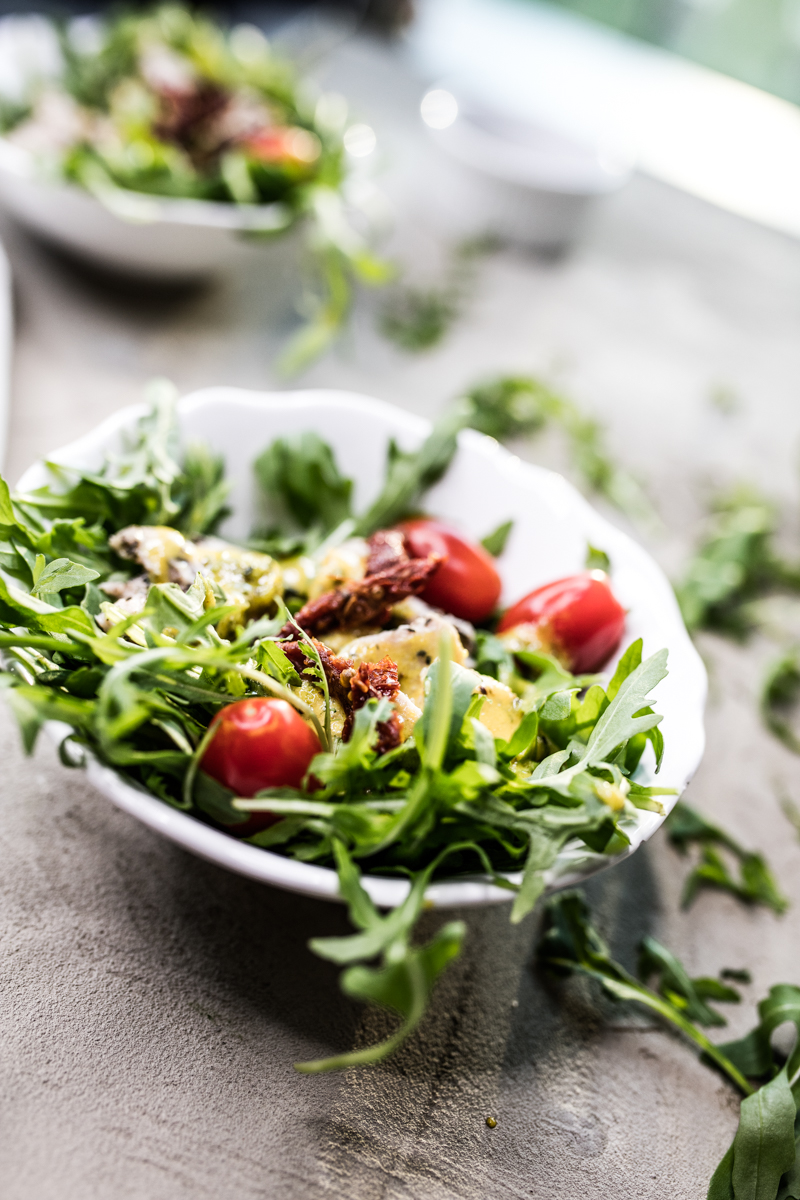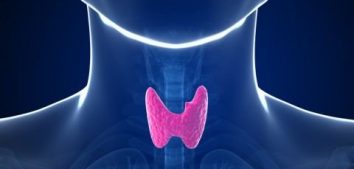
Vegetarian diet – two sides of the same coin
A vegetarian diet has become very popular nowadays. You frequently ask what I think about it. First of all, I believe that a switch to vegetarianism, just like any other serious decision, should be made individually, and should be based on the research you have done on the topic. Today I would like to share with you my knowledge and experience concerning a vegetarian diet, focusing both on the benefits and potential risks of following it.
Vegetarianism – what is it about?
Vegetarianism is a diet that eliminates all kinds of meat, including, poultry, fish and seafood. A vegetarian diet is based mainly on plant foods. Depending on the type of vegetarianism, the consumption of dairy products (lactovegetarianism), eggs (ovovegetarianism), fish (pescowegetarianizm) and poultry (semi-vegetarianism) is sometimes allowed. The most popular type of vegetarian diet is lacto-ovo-vegetarianism, which allows the consumption of dairy products and eggs. Veganism, in turn, is a type of vegetarianism in which all products of animal origin are excluded. The extreme varieties of vegetarianism include raw foodism and fruitarianism. Raw vegans only eat raw, unprocessed and uncooked vegetables and fruits, while fruitarians eat only fruit.
Why do people become vegetarian more and more often?
There are various reasons why people switch to a vegetarian diet. Some people do it for ethical reasons, some lose trust in the quality of animal products on offer. There are also people who switch to vegetarianism for health reasons – they admit that after they quit meat, they have begun to feel much better. Others choose the meatless diet because of ecology, humanitarianism or religion.

What are the benefits of vegetarianism?
The most common positive effects of a vegetarian diet include lowering of serum cholesterol, hypotension, lower risk of cardiovascular disease, type 2 diabetes, and cancer. In addition, excess weight and obesity as well as digestive problems, such as constipation, are less common in vegetarians. All of these advantages of a vegetarian diet result mainly from the fact that vegetarians consume fewer calories and animal fats which are a source of saturated fatty acids and cholesterol. Their diet is based mainly on products of natural origin and they avoid highly processed foods. Hence, their diet contains significantly less unfavorable trans fats, simple sugars and salt. Due to the presence of more vegetables and fruits, this diet is usually rich in vitamins with antioxidant properties (vitamin C, carotenoids). It supplies large amounts of folic acid, potassium and magnesium. Vegetarians also consume more unsaturated fats and dietary fiber that are beneficial to our health. In addition, they are less likely to consume nitrosamines, antibiotic residues and veterinary medicines, or to catch parasitic infections and other zoonoses. Vegetarianism is often not just a diet, but a healthy lifestyle. Vegetarians usually avoid drinking alcohol or smoking. They are also more physically active, which also contributes to their better health.
What are the risks of following a vegetarian diet?
An incorrectly balanced vegetarian diet (just like any diet that is ill-suited) may increase the risk of potential nutritional deficiencies. In vegetarians, protein deficiencies, vitamin B12, vitamin D, iron, zinc, calcium, selenium, iodine and polyunsaturated omega-3 fatty acids are most common. Very restrictive varieties of a vegetarian diet may, in turn, result in a higher risk of anemia, osteoporosis and menstrual disorders. A vegetarian diet may also expose the body to contact with anti-nutritional substances, residues of crop protection products and artificial fertilizers.
A vegetarian diet – what else should you remember?
If you want to cut out meat and other animal products, you have to supplement your diet with ingredients that we usually supply with these products.
Protein
In a traditional vegetarian diet, there are many products that are a good source of protein, such as eggs and dairy products. The problem may arise if all animal products are eliminated from the diet. Unfortunately, vegetable proteins usually do not contain all the essential amino acids. When it comes to vegetable products, the best source of protein is dry legume seeds. Increasing the nutritional value of protein can be obtained by combining particular groups of food products (e.g. buckwheat with seeds or nuts, adding muesli to natural yogurt).
Omega-3 polyunsaturated fatty acids
Vegetarian diets are usually rich in n-6 polyunsaturated fatty acids but contain few n-3 fatty acids. If you give up the consumption of fish, remember that a good source of these acids may be linseed oil, walnuts and chia seeds.
Iron
Vegetarians often have iron deficiencies. It is related to the fact that the non-haem iron contained in plant products is not absorbed by our body in the same way as heme iron, present in animal products. High intake of fiber may additionally hinder the absorption of this element. My advice to vegetarians: eat foods rich in iron, such as dry legume seeds, whole grains, green leafy vegetables, including sour products, rich in vitamin C. This improves the absorption of this mineral. And do not forget about amaranth and pumpkin seeds! 🙂 You can learn here how to prepare a tasty amaranth meal: https://healthyplanbyann.com/owsianka-amarantusa-owocami/.
Calcium
People who have decided to go on a vegan diet may have problems with adequate calcium intake. Like iron, calcium from plant products is not so easily absorbed due to the content of phytic compounds, fiber, and oxalic acid. When you decide to switch to veganism, you should consider supplementing this element. It is also good to choose vegetable drinks enriched with calcium and water with high mineral content (especially calcium and magnesium). Cruciferous vegetables and some gluten-free cereals, such as teff, amaranth or quinoa are relatively rich in calcium. It is also a good idea to introduce poppy seeds and sesame into your diet, as they are also a good source of this mineral.
Zinc
The absorption of zinc from vegetable products is worse than from products of animal origin. Therefore, if you are on a vegetarian diet, it is worth increasing the intake of this mineral. A good source of zinc for vegetarians are whole grains, dry legume seeds, nuts and seeds.
Iodine
Vegetarians may also have problems with the insufficient supply of iodine – the main sources of this mineral are sea fish and seafood. Including seaweed and sea algae in the diet can be helpful. One of the sources of this ingredient may also be mineral water and iodised salt.
Vitamin B12
A vegan diet does not provide the right amount of vitamin B12, because no plants can synthesize it. Therefore, the need to supplement vegans with vitamin B12 is indisputable. Vegetarians who consume animal products, such as eggs and dairy, usually have a sufficient supply of this vitamin.
Vitamin D
Vegetarians should remember about vitamin D supplementation. It is especially recommended in autumn and winter.
A summary
A properly balanced and varied vegetarian diet can provide a healthy alternative to traditional nutrition. Studies carried out so far have shown that a vegetarian diet can be safely used by most people of all ages. The exceptions are very strict vegetarian diets, which can significantly contribute to an increased risk of food deficiencies. If you do not want to completely eliminate meat from your diet, you should at least limit its consumption. Regardless of what motivations you are guided by, the benefits of such a choice will be measurable. I did not completely give up eating meat, but vegetables and fruits reign supreme in my diet. I do not eat milk because I don’t tolerate it very well. I love vegetarian dishes! That’s why, on my blog, you will find lots of recipes without the use of animal products, and I’m sure every vegetarian will find some goodies here.
Bibliography:
1: Barnard ND, Levin SM, Yokoyama Y. A systematic review and meta-analysis of changes in body weight in clinical trials of vegetarian diets. J Acad Nutr Diet. 2015;115(6):954-69.
2: Kahleova H, Pelikanova T. Vegetarian diets in the prevention and treatment of type 2 diabetes. J Am Coll Nutr. 2015;34(5):448-58.
3: Li D. Effect of the vegetarian diet on non-communicable diseases. J Sci Food Agric. 2014;94(2):169-73.
4: Pilis W, Stec K, Zych M, Pilis A. Health benefits and risk associated with adopting a vegetarian diet. Rocz Panstw Zakl Hig. 2014;65(1):9-14.
5: Wang F, Zheng J, Yang B, Jiang J, Fu Y, Li D. Effects of vegetarian diets on blood lipids: a systematic review and meta-analysis of randomized controlled trials. J Am Heart Assoc. 2015;4(10):e002408.









Comments No Comments
Join the discussion…